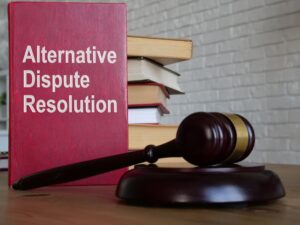What Are Chemical Restraints in Nursing Home Abuse?
Abuse and Neglect, Nursing Home AbuseChemical restraints refer to the use of medications to control behavior or restrict movement in nursing home residents, often without their informed consent. This practice is abusive when used as a form of control rather than for medical reasons.
In nursing homes, some staff may administer drugs to sedate residents, making them easier to manage or reducing the need for supervision. However, this can lead to serious health risks, including falls, confusion, and even death. It violates residents’ rights and can have lasting physical and psychological effects.
If you believe that your loved one is a victim of nursing home abuse, you need to take swift action. A knowledgeable nursing home abuse lawyer in your area can investigate the circumstances, determine your legal options, and pursue compensation on your loved one’s behalf.
Medical Complications That May Arise from Nursing Home Abuse

Nursing home abuse involving chemical restraints can lead to a range of serious medical complications for elderly residents. These medications, when used inappropriately or excessively, can have detrimental effects on the physical and mental health of vulnerable individuals.
One common complication is sedation, whereby residents may become excessively drowsy or lethargic due to the effects of the medications. This can increase the risk of falls and injuries and impair their ability to participate in daily activities and interact with others.
Another potential complication is respiratory depression, whereby the central nervous system is suppressed to the point of affecting breathing. This can be particularly dangerous for elderly individuals, who may already have compromised respiratory function due to age-related conditions such as chronic obstructive pulmonary disease (COPD) or asthma.
Moreover, chemical restraints can contribute to cognitive decline and confusion, especially in residents with dementia or other cognitive impairments. These medications can worsen existing cognitive deficits and increase the risk of delirium, a sudden and severe change in mental status.
Furthermore, long-term use of chemical restraints can lead to physical dependence and tolerance, meaning that higher doses are necessary over time to achieve the same effect. This can result in a vicious cycle of escalating medication use and increased risk of adverse effects.
In addition to these immediate complications, nursing home abuse involving chemical restraints can also have long-term consequences for residents’ overall health and well-being. Prolonged sedation and immobilization can lead to muscle weakness, loss of mobility, and pressure ulcers (bedsores) due to decreased blood flow and tissue damage.
Furthermore, chemical restraints may mask underlying medical conditions or symptoms, leading to delayed diagnosis and treatment. Residents may suffer from untreated pain, infections, or other medical issues that go unnoticed or unaddressed while they are sedated or incapacitated.
Legally Proving Nursing Home Abuse Involving Chemical Restraints
Proving the legal elements of nursing home abuse involving chemical restraints requires a thorough understanding of the laws and regulations governing such facilities, as well as the specific circumstances surrounding each case. The legal elements typically involve establishing that abuse occurred, someone with a duty of care (such as nursing home staff) committed the abuse, and it resulted in harm to the resident.
To prove abuse, evidence may include:
- Medical records documenting the administration of unnecessary medications.
- Witness statements from other residents or staff members who observed the abuse.
- Testimony from medical experts who can attest to the harmful effects of chemical restraints.
In addition, documenting any changes in the resident’s behavior or health status, such as increased sedation or unexplained injuries, can strengthen the case.
Proving that someone with a duty of care committed the abuse often involves identifying the specific staff members responsible for administering the medications and demonstrating that they acted outside the scope of their professional duties. This may require gathering evidence such as staff schedules, medication logs, and facility policies regarding the use of chemical restraints.
Finally, proving that the abuse resulted in harm to the resident requires documenting the physical and psychological effects of the chemical restraints. This may include medical records showing injuries or adverse reactions to the medications, as well as testimony from the resident and their family members about the effect on their quality of life.
Helpful types of evidence in these cases may include:
- Medical Records — Detailed medical records can provide crucial evidence of the administration of medications, any adverse reactions the resident experienced, and changes in their health status over time.
- Witness Statements — Statements from other residents, family members, or staff members who observed the abuse can corroborate the resident’s account and provide additional evidence of wrongdoing.
- Expert Testimony — Testimony from medical experts, such as physicians or pharmacists, can help establish the harmful effects of chemical restraints and the standard of care the facility should have followed.
- Documentation of Changes — Detailed records of any changes in the resident’s behavior, health, or medication regimen can help establish a pattern of abuse and demonstrate the effects on the resident’s well-being.
- Facility Policies and Procedures — Reviewing the nursing home’s policies and procedures regarding the use of chemical restraints can provide insight into whether staff followed proper protocols and whether the abuse was systemic or isolated incidents.
Settling or Pursuing Alternative Dispute Resolution (ADR) in a Nursing Home Abuse Case

In a nursing home abuse case involving chemical restraint, victims and their families may consider settling the case or pursuing alternative dispute resolution (ADR) as a way to resolve the dispute outside of court.
Settling the case involves reaching a negotiated agreement between the victim (or their representative) and the nursing home or its insurance company. This agreement typically involves paying a certain amount of compensation to the victim in exchange for releasing the nursing home from further liability. Settlements can be beneficial as they often result in faster resolution, lower legal costs, and the ability to avoid the uncertainty and emotional toll of a trial. However, victims should ensure that any settlement offer adequately compensates them for their injuries and losses.
Alternatively, parties may opt for alternative dispute resolution methods such as mediation or arbitration. Mediation involves a neutral third party (the mediator) facilitating discussions between the parties to help them reach a mutually acceptable resolution. Arbitration involves presenting the case to a neutral arbitrator who will make a binding decision on the dispute. ADR methods can offer greater flexibility, privacy, and control over the outcome compared to litigation, but they may not always result in a satisfactory resolution for all parties involved. Ultimately, the decision to settle or pursue ADR depends on the case’s specific circumstances and the parties’ preferences.
Taking a Nursing Home Abuse Case to Court
Taking a nursing home abuse case involving chemical restraints to trial is a complex process that requires careful preparation and presentation of evidence. At trial, both the victim or their representative (the plaintiff) and the nursing home or its staff (the defendant) have the opportunity to present their arguments and evidence before a judge and/or jury.
The trial begins with selecting a jury, if applicable, followed by opening statements from each side. During opening statements, the attorneys outline their case and preview the evidence they will present to support their arguments. The plaintiff’s attorney will typically emphasize the harm the resident suffered due to the inappropriate use of chemical restraints, while the defendant’s attorney may attempt to downplay the severity of the abuse or shift blame away from the nursing home.
After opening statements, both sides can present their evidence through witness testimony, documents, and other exhibits. This may include testimony from medical experts, nursing home staff, family members, and other witnesses who can provide insight into the circumstances surrounding the abuse and its effect on the resident.
During witness testimony, attorneys can ask questions to elicit relevant information and challenge the credibility of opposing witnesses. Cross-examination, where the opposing attorney questions the witness, is a critical part of the trial process that seeks to uncover inconsistencies or weaknesses in the other side’s case.
In addition to witness testimony, both parties may introduce documents and other exhibits as evidence, such as medical records, incident reports, and facility policies regarding the use of chemical restraints. These documents can help corroborate witness testimony and provide additional context for the jury to consider.
Once both sides have presented their evidence, they make closing arguments summarizing their case and urging the jury to rule in their favor. After closing arguments, the judge instructs the jury on the relevant legal standards and guidelines for reaching a verdict.
The jury then deliberates in private to reach a decision based on the evidence both sides presented at trial. If the case is being tried before a judge without a jury, the judge will issue a verdict based on the evidence and legal arguments presented during the trial.
If the jury or judge finds in favor of the plaintiff, they may award damages to compensate the resident for their injuries and losses resulting from the nursing home abuse. These damages may include compensation for medical expenses, pain and suffering, emotional distress, and punitive damages to punish the defendant for their misconduct.
Recovering Compensation for Nursing Home Abuse

Individuals who have suffered nursing home abuse as a result of chemical restraints may be entitled to various types of compensation to help them recover from the harm they’ve experienced. These types of compensation can address both the tangible losses, such as medical expenses, and the intangible harm, such as pain and suffering, the abuse caused.
One type of compensation is economic damages, which seek to reimburse the victim for financial losses incurred as a result of the abuse. This may include compensation for medical expenses, such as hospital bills, doctor’s visits, medication costs, and rehabilitation services needed to treat injuries or conditions resulting from the abuse.
Another type of compensation is non-economic damages, which intend to compensate the victim for intangible losses that are more difficult to quantify. These may include compensation for pain and suffering, emotional distress, loss of enjoyment of life, and mental anguish caused by the abuse. Non-economic damages aim to provide a sense of justice and acknowledgement of the victim’s suffering beyond just financial losses.
In cases of particularly egregious misconduct, the victim may pursue punitive damages. The purpose of punitive damages is to punish the defendant for their wrongdoing and deter similar misconduct in the future. Punitive damages go beyond compensating the victim and serve as punishment for the defendant’s negligent or intentional actions.
In addition, a victim may pursue compensation for other damages and expenses related to the abuse, such as reimbursement for out-of-pocket costs, including travel expenses to medical appointments or therapy sessions and the cost of hiring caregivers or other support services to assist the victim with their daily needs.
The amount of compensation in nursing home abuse cases involving chemical restraints can vary depending on the severity of the abuse, the extent of the victim’s injuries, and other factors specific to the case. Other factors that may influence the amount of compensation a victim receives include:
- The duration and frequency of the abuse
- The level of negligence or intent on the part of the defendant
- The jurisdiction’s laws regarding damages caps and other limitations on recovery
You can expect nursing homes and insurance companies to downplay abuse to minimize payments to victims and their families. Doing so not only leaves victims without justice but also takes away from their devastating and harmful experience.
A nursing home abuse attorney will always take the harm victims suffered seriously and fight for full justice.
Speak to a Nursing Home Abuse Lawyer Right Away
If you suspect that your loved one may be a victim of nursing home abuse, always immediately contact experienced legal counsel. Your attorney can investigate the circumstances of the suspected abuse and explore your legal options. Then, your nursing home attorney may file a claim or a lawsuit against the nursing home or their insurance company, seeking various damages on behalf of your loved one. Your personal injury attorney will do everything possible to maximize the compensation your loved one receives for their medical complications arising from nursing home abuse.
Nathan Hughey, an attorney and fourth-generation South Carolinian, founded Hughey Law Firm in 2007. Before that, he spent five years defending nursing homes and insurance companies. Leveraging his experience, he now advocates for those injured or wronged by such entities, securing over $290 million in verdicts and settlements.
